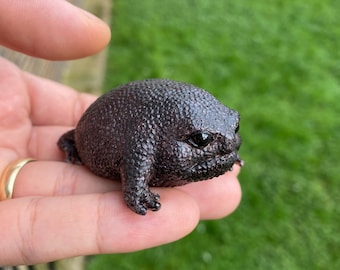Common Health Issues in Reptiles: Symptoms and Solutions
In the detailed globe of reptile treatment, comprehending the common health issues that may affect these distinct creatures is extremely important in guaranteeing their well-being. From breathing infections that can silently take hold to metabolic bone diseases that can debilitate, reptiles are vulnerable to a variety of ailments that need eager observation and timely treatment. Whether it's facing parasitic invasions, navigating dehydration concerns, or addressing skin conditions that materialize in subtle means, being in harmony with the symptoms and geared up with the understanding of reliable remedies is necessary for any type of reptile proprietor. By delving additionally right into the subtleties of these health and wellness issues and discovering the useful treatments available, one can protect the wellness and vitality of these fascinating pets.
Breathing Infections
Respiratory infections in reptiles can substantially influence their total wellness and need timely interest from knowledgeable vets. These infections are commonly triggered by infections, fungi, or germs and can show up with signs and symptoms such as hissing, nasal discharge, open-mouth breathing, and sleepiness. In reptiles, respiratory system infections can be especially testing to identify and deal with due to their one-of-a-kind makeup and physiology. Vets typically count on a combination of health examinations, diagnostic imaging, and lab examinations to accurately determine the underlying root cause of the infection.
Therapy for respiratory system infections in reptiles normally involves a combination of encouraging care, such as keeping proper moisture levels and temperature slopes in the room, along with targeted medication to attend to the specific virus in charge of the infection. It is critical for reptile owners to monitor their family pets closely for any indicators of respiratory system distress and seek vet treatment at the earliest indication of a concern. With timely treatment and proper therapy, lots of reptiles can recoup completely from breathing infections and resume normal activities.

Metabolic Bone Disease
What elements add to the growth of Metabolic Bone Disease in reptiles?
Metabolic Bone Illness (MBD) in reptiles is mostly triggered by an absence of correct calcium, phosphorus, and vitamin D3 degrees in their diet. When reptiles do not get ample calcium, either through their food or correct UVB exposure for vitamin D3 synthesis, they are at a high risk of developing MBD. Reptiles with diet plans low in calcium or unbalanced calcium to phosphorus proportions are specifically at risk. In addition, insufficient direct exposure to UVB light stops reptiles from manufacturing vitamin D3, which is vital for calcium absorption and bone health.
Insufficient humidity levels can also impact a reptile's capacity to metabolize calcium successfully. Routine veterinary exams, appropriate husbandry practices, and a balanced diet regimen are crucial to avoid Metabolic Bone Condition in reptiles.
Parasitic Invasions
Parasitic infestations position a significant wellness threat to reptiles, impacting their total wellness and needing timely vet focus. Reptiles can be affected by numerous parasites, including termites, ticks, internal worms, and protozoa. These bloodsuckers can create a variety of signs, such as weight loss, sleepiness, skin inflammation, looseness of the bowels, and also death if left unattended.
One usual bloodsucker located in reptiles is the mite, which can create skin stress and anxiety, irritation, and anemia. Ticks are one more external bloodsucker that can transmit conditions and cause discomfort to the reptile. Interior bloodsuckers like worms and protozoa can bring about digestive system problems, lack of nutrition, and compromise the reptile's immune system.
To diagnose a parasitical invasion, a veterinarian might Web Site carry out fecal tests, skin scrapings, or blood tests. Treatment typically includes deworming drugs, antiparasitic baths, or in serious situations, a hospital stay. Preventative actions such as regular vet examinations, appropriate hygiene, and quarantine treatments for brand-new reptiles can aid decrease the risk of parasitical problems and ensure the well-being of reptile pets.
Dehydration and Hydration Issues
Dehydration in reptiles can considerably influence their health and health, necessitating timely treatment and proper hydration administration. Reptiles are susceptible to dehydration because of various factors such as poor water consumption, high environmental temperatures, and particular health and wellness conditions. Symptoms of dehydration in reptiles consist of sunken eyes, lethargy, loss of skin flexibility, and minimized urination. If left neglected, dehydration can lead to serious wellness problems and also be deadly to the reptile.
To stop dehydration, reptile owners need to make sure that their pets have accessibility to tidy water whatsoever times. The water dish must be large enough for the reptile to saturate in if needed, specifically for species that take in water with their skin. In addition, preserving proper humidity levels in the reptile's room and providing regular baths can help avoid dehydration.
In instances of dehydration, it is vital to seek veterinary treatment without delay. A veterinarian may carry out fluids either orally or via shots to rehydrate the reptile. It is important to resolve the underlying cause of dehydration to avoid reappearance and guarantee the reptile's general health.
Skin Ailments

Final Thought

Breathing infections in reptiles can considerably impact their total health and wellness and require timely attention from seasoned veterinarians (rain frog for sale). Preventative measures such as normal veterinary check-ups, appropriate hygiene, and quarantine procedures for brand-new reptiles can assist minimize the danger of parasitical invasions and ensure the wellness of reptile pets
If left without treatment, dehydration can lead to major wellness issues and also be deadly to the reptile.
Consistently inspecting your reptile for any kind of changes in skin shade, appearance, or appearance can aid in early discovery and therapy of skin ailments, promoting the total health and wellness and wellness of your scaly companion. - rain frog for sale
In final thought, reptiles are vulnerable to numerous wellness concerns such as respiratory system infections, metabolic bone condition, parasitic infestations, dehydration, and skin disorders.